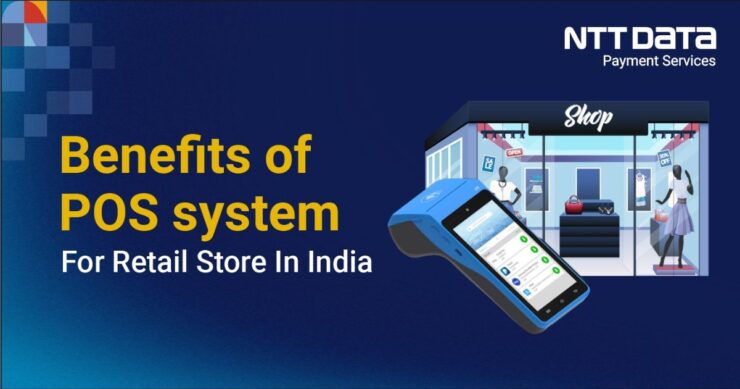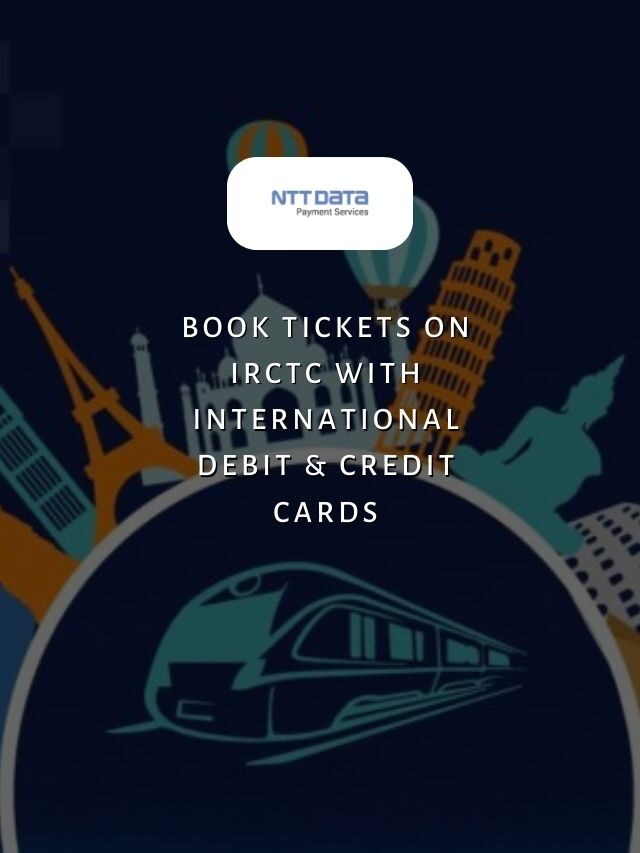
Table of Contents
The Point-of-Sale (POS) system is the reason behind the growth of many Indian retail businesses. A modern POS solution can improve your retail operations, driving efficiency, enhancing customer experiences, and the company’s financial growth. In this blog, we will discuss the top 10 benefits of using a POS (point of sale) system for retailers in India.
Overview on POS systems for retail stores in India
The retail industry in India has seen tremendous growth in recent years. As consumers are shopping more today, the demand for innovative shopping solutions has increased. That’s where retailers opt for a POS system for their retail stores.
A POS or point of sale, system allows retailers to manage sales, inventory, customer data and other aspects of their business from a single computer system. POS systems for retail stores in India are designed to meet the unique needs of the country’s retail sector.
POS systems offer functionalities for processing payments via cards, QR, EMI etc. They also integrate with GST billing requirements. With cloud-based POS, retailers can access real-time business insights from any location. Overall, a POS system aims to streamline operations, boost sales, and provide superior service to customers.
Recent Web Stories
Top 10 benefits of using a POS system for retail stores in India
Here are the top 10 benefits of using a POS system for your retail store.
1. Faster checkouts:
Long queues during peak hours can frustrate customers and impact sales. A POS system speeds up the checkout process, allowing staff to process multiple customers simultaneously, reducing queues and waiting time for customers.
Features like barcode scanning and cash drawer integration help complete transactions within seconds. This improves customer satisfaction and helps convert more sales during busy periods. Another big advantage is the ability to accept various payment modes, like, cards, EMI, QR, etc., through a single POS interface.
2. Accurate inventory management:
Managing physical inventory and tracking stock levels manually is tedious and error-prone. A POS system automatically tracks product sales and adjusts inventory levels in real-time. This helps avoid stock-outs and reduces the risk of theft.
Features like barcode scanning, automated reordering, purchase order tracking, etc., help maintain optimal inventory levels. Real-time visibility into stock on hand, stock movements, and low stock alerts help avoid situations of stock-outs and expiry. This directly impacts profitability by reducing costs associated with overstocking or lost sales due to stock-outs.
3. Detailed sales reports:
Maintaining accurate financial and sales records is crucial for any retail business. However, with manual record keeping, there is always a risk of errors creeping in. A POS system for retail stores automates bookkeeping tasks and maintains digital records of all transactions.
This ensures accurate recording of sales, returns, discounts, taxes, etc. Digital records are also easier to access, export, and analyse for insights compared to physical documents. Retailers also get insights into the best-selling products, times of high customer footfall, revenue per day/week, and more through easy-to-understand sales reports from the POS system.
4. Customer loyalty programs:
A POS integrated with CRM and loyalty programs helps build stronger customer relationships. Features like targeted promotions, loyalty points, personalised offers, and automated emails/SMS based on purchase history improve engagement.
Customer spending patterns and preferences captured through the POS also help create more impactful marketing campaigns. Businesses can reward high-value customers, cross-sell and upsell relevant products, increase basket sizes, and boost repeat sales over time. This is a great way to maximise lifetime customer value through an integrated POS system for a retail store.
5. Omnichannel capabilities:
Modern POS systems offer omnichannel capabilities, allowing customers to shop both in-store and online. Features like buy online, pick up in-store, reserve & try, ship from store, etc, give customers flexibility.
This is extremely useful post-pandemic as consumer preferences evolve. A unified view of inventory across channels also ensures stock visibility. Omnichannel retailing through a POS system for retail stores helps boost sales and stay relevant.
6. Secure payments:
A POS system allows retail stores to accept secure payments from customers. Payment details like credit/debit card numbers or other financial information are encrypted when transactions are done through the POS.
This ensures that customers’ sensitive financial data is not compromised. Various payment options, such as credit/debit cards, EMI, QR , etc., can be supported, which gives customers flexibility in paying.
The transactions are automatically recorded in the accounting software, reducing errors. This improves payment security for both customers and retailers.
7. GST compliance:
One of the major benefits of using a POS system for retail stores in India is that it helps with GST compliance. The Goods and Services Tax (GST) has made compliance and billing more complex for retail businesses. A POS system automates and simplifies the billing and invoicing process. It automatically generates GST-compliant invoices with all the required information, such as itemised billing, HSN/SAC codes, tax rates, etc.
POS also integrates with accounting software, which allows seamless syncing of transaction data. This helps in e-filing GST returns easily. Overall, a POS system eliminates all the manual efforts related to GST compliance and ensures businesses adhere to all the GST regulations.
8. Labor management:
With a POS, tasks like staff scheduling, time & attendance tracking can be automated. Features like user logins prevent unauthorised access. Real-time visibility into staff performance using analytics helps identify training needs and optimise staff allocation across departments/stores. This level of control and oversight improves operational efficiency through better labour management.
Integrations with HR and payroll systems allow the syncing of employee records as well. Features like shift scheduling, attendance tracking, and payroll management help retailers optimise store staff.
9. Multiple Location Management
As retail businesses expand to multiple outlets, managing decentralised operations becomes challenging. A cloud-based POS system allows central management and monitoring of all store locations from any device. Features like remote access and centralised reports give corporate visibility.
Setting common policies, controlling permissions, and pushing updates is seamless. Store managers get self-service analytics to monitor their outlet performance. This unified multi-store management is a big advantage for retail chains using a POS system for retail stores across outlets.
10. Growth analytics:
Data is gold for any business, and POS systems generate loads of it. From sales reports to customer profiles to item-wise performance – a POS system provides a 360-degree view of business metrics. This transactional and customer data can be analysed for valuable insights using built-in analytics or third-party business intelligence tools.
Insights on top-selling items, best-performing stores, customer segments, seasonal trends, etc, can help optimise operations, pricing, promotions and future planning. For any retail business, having access to actionable data through their POS system for retail stores is extremely valuable.
Get the best POS system for your business growth – NTT DATA Payment Services
NTT DATA Payment Services is a leading POS solution provider focused on the Indian market. Powered by advanced technology and local expertise, its POS systems are customised to help retailers maximise productivity and sales.
NTT DATA Payment Services offers a complete payment solution to advance both your offline and online businesses from,
- Payment Gateway in India
- POS machines
- IVR payments
- Mobile applications, and
- Bharat QR Scan and Pay
We ensure maximum comfort, convenience, and safety for all your payments. Retailers can partner with NTT DATA Payment Services to choose from a range of POS terminal options according to their business size and needs.
Conclusion
Today, a POS system is no longer just an option but necessary for businesses of all sizes. The operational efficiencies, data-driven insights and customer experience advantages offered by a robust POS far outweigh any costs associated with its implementation and management in the long run.
Retailers looking to implement a POS solution should partner with experienced providers like NTT DATA Payment Services to choose the best POS system for retail stores tailored to their unique requirements.
| Also, you can get frequent updates on nttdatapayments Instagram page. |
Frequently Asked Questions (FAQs)
1. What is a POS system?
A POS or point of sale, system is a computerised system that allows retailers to manage sales, inventory, customer data, and other operations from a single interface. It automates tasks like billing, inventory tracking, payment processing, etc.
2. What are the major benefits of using a POS system for retail stores?
The top 10 benefits are faster checkouts, accurate inventory management, detailed sales reports, customer loyalty programs, omnichannel capabilities, secure payments, GST compliance, labour management, multiple location management and growth analytics.
3. How does a POS system help with inventory management?
A POS system automatically tracks product sales and adjusts inventory levels in real-time. It helps maintain optimal inventory levels through features like barcode scanning, automated reordering, purchase order tracking, etc. This reduces costs associated with overstocking or stock-outs.
4. How can a POS system help with GST compliance?
A POS system automatically generates GST-compliant invoices with all required information, such as itemised billing, HSN/SAC codes, and tax rates. It also integrates with accounting software for seamless GST return filing, eliminating all manual efforts related to GST compliance.
5. What are the benefits of a cloud-based POS system?
A cloud-based POS allows remote access and centralised monitoring of all store locations from any device. It provides unified multi-store management and self-service analytics for store managers, improving visibility and control for retail chains.







